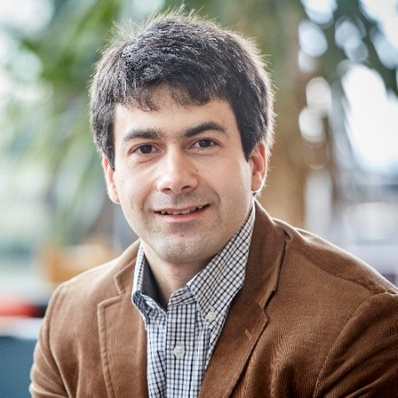THIS EVENT IS NOW SOLD OUT
Please sign waiting list if you would like to attend
*Please note this does not guarantee that you will be able to attend on the day.
Unlocking Opportunities in Research Methodology Training
Embark on a transformative journey with our webinar: "Navigating Challenges, Unlocking Opportunities: Rethinking Research Methodology Training for Students and Early Career Researchers in the Digital Age."
Join us for an engaging half-day session where we explore the evolving landscape of research methodologies in business and management. Led by expert scholars deeply committed to methods education, our plenary session features lightning talks addressing key challenges and advocating for innovative solutions.
From harnessing the power of data and generative AI to engaged research, co-production and decolonialization, we'll dive into topics crucial for today's researchers. In breakout groups, participants will collaborate to brainstorm challenges and opportunities, guided by facilitators. Together, we'll start to develop actionable strategies to revolutionise methods training. In a plenary wrap-up, each group presents insights and proposed opportunities for further discussion and action.
Don't miss this opportunity to be part of the dialogue shaping the future of research methodology education.
Register now and join us on 7 June for a great workshop!
Provider Information
BAM Research Methodology Special Interest Group
Who Should Attend?
The event focusses on Mid-Career and Senior-Career scholars who are involved in the development and delivery of research methods training.
The event is also open to early career colleagues interested in the subject matter.
BAM Framework
Event Information
09:30 - 10:15
Plenary Session:
Our workshop kicks off with an engaging plenary session featuring 4 brief presentations of about 10 minutes each. These presentations will identify a challenge to current methods of teaching and advocate for transforming it into an opportunity. Experienced scholars, well-versed in methods teaching in business and management, will lead these talks.
Topics:
Engaged scholarship research - Fariba Darabi
Description: Academic careers often emphasize abstract theoretical contributions, neglecting practical applicability. How can we refocus research methods training on engaged methodologies suited for challenge-driven research and co-production?
The rise of data analytics – Danat Valizade
Description: Access to unprecedented quantities of data spurred on a step change in how data and algorithms are used in business practice. However, the integration of data analytics into research methodology teaching remains limited. How can we ensure students learn methods that enable productive engagement with the opportunities presented by modern data availability? What can we do to reflect this change in the way we teach research methods to students and early career researchers?
Decolonization – Lena Jaspersen
Description: Decolonizing research methodologies not only advances justice but also enhances our disciplines. How can we integrate diverse perspectives into our curriculum to advance decolonization in research methods teaching? What practical steps can we take to foster a more inclusive and impactful academic community?
Generative AI – Mark NK Saunders
Description: Generative AI applications are reshaping how we review, conduct, and disseminate research. How can we proactively embrace the opportunities presented by generative AI while effectively navigating associated challenges?
10:30 - 11:30
Breakout Groups:
During the break, participants can select and join one of four breakout groups. We aim for 5-10 participants per group. Each group will be moderated by a scholar who presented a lightning talk. The discussion will consist of three steps:
- Challenges: Participants will identify 2-4 specific challenges related to the topic. They will post these challenges on a digital Mural wall for discussion.
- Each breakout group has its own wall. Link to the draft mural wall will be shared in the room.
- Opportunities: Following the same format, participants will identify 2-4 specific opportunities related to the topic. The facilitator will then guide a 20-minute discussion.
- Wrap-up: Facilitators will lead a discussion aimed at selecting three opportunities: a 'quick win,' a 'next step,' and a 'transformational opportunity.'
11:45 - 13:00
Plenary and Wrap-up:
Each group will present a five-minute summary of their discussion and the three opportunities they have selected. The chair will suggest ways to continue the conversation, including follow-up events, working groups, or Special Issue proposals. Participants may also suggest alternative opportunities.
Workshop Follow-up:
A summary document containing brief summaries of the lightning talks and the identified opportunities will be distributed post-event. Participants are encouraged to provide feedback via a survey, indicating how they would like to continue the debate/initiative.
- Innovative Insights: Participants will gain valuable insights from expert scholars on current challenges and opportunities in research methodology training, equipping them with cutting-edge knowledge to navigate the evolving landscape effectively,
- Collaborative Learning: Attendees will engage in collaborative breakout sessions with peers and facilitators to brainstorm challenges, explore opportunities, and develop actionable strategies together, fostering a dynamic learning environment,
- Practical Solutions: Participants will acquire practical solutions and strategies to enhance research methodology training for students and early career researchers, empowering them to implement impactful changes in their educational practice or institution,
- Networking Opportunities: Participants will have the chance to connect with like-minded professionals and academics passionate about research methodology education, expanding their network and fostering potential collaborations for future endeavours,
- Professional Development: By participating in discussions on innovative learning resources, ethical considerations, and decolonization in research methodologies, attendees will enhance their professional development, gaining valuable skills and perspectives to advance their careers.
By attending this workshop, participants will not only gain valuable knowledge and insights but also contribute to shaping the future of research methodology education in the digital age.
BAM Member: Free
BAM Student Member: Free
BAM Non-Member: £30
If you are not a BAM member and would like to join the conference, you will need to become a member first. You will then be able to book a ticket via the 'Book Now' button.
To find out more, and to become a member, please click here.
Registrations close on 5th June 2024 at 23:59 BST.
Contact
Please contact the BAM Office at [email protected] with any queries.
Registration closes on 5th June 2024 at 23:59 BST
Payment for the event must be received before the start date of the event concerned. Access will not be permitted to the event if full payment has not been received.
Cancellations
-
Cancellations received within 14 days of booking your place on the event will receive a full refund.
-
Cancellations received after the 14-day cancellation period and later than 14 days before the start date of the event will not be eligible for a refund.
-
Although we endeavour to run all events as advertised, BAM reserves the right to cancel any event if, for example, there are not enough people to justify running the event or if other significant unforeseen circumstances arise.
To cancel a booking a cancellation request must be submitted via your BAM Account, to do this:
- Go to your BAM Account
- Click 'My Events'
- Under 'Upcoming Events' will be the booking, please click Cancel Booking
- Follow the steps and complete the request






